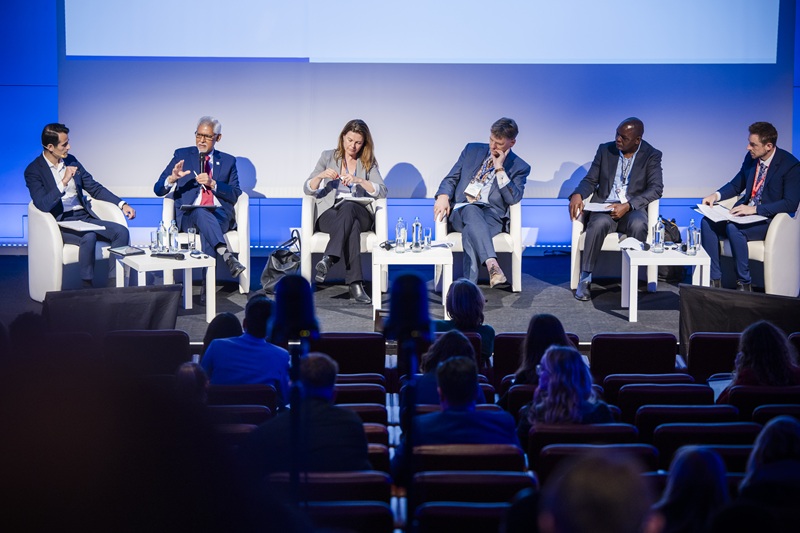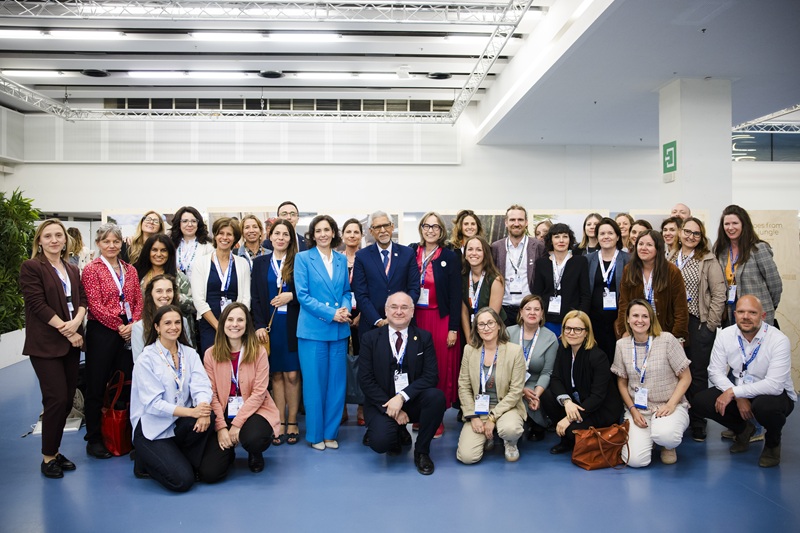European Humanitarian Forum: placing humanity and solidarity at the core
The Polish Presidency of the Council of the EU and the European Commission jointly organised the fourth edition of the European Humanitarian Forum (EHF) on 19-20 May. This edition took place amidst escalating humanitarian needs, shifting geopolitics, funding reduction and growing multidimensional crises. There are currently more than 305 million people requiring urgent aid due to conflict, climate emergencies, food insecurity, and economic instability. Through panel discussions, humanitarian talks and exhibitions, participants explored ways to foster an integrated approach to fragility and enhance humanitarian diplomacy efforts.
This year, the forum explored ways to foster an integrated approach to fragility, enhancing collaboration between humanitarian, development, and peace actors, that can bring immediate relief and long-term solutions.
One of the objectives of the forum was to reflect about how the EU humanitarian diplomacy can promote respect for International Humanitarian Law, protect humanitarian space, ensure access to aid, and safeguard humanitarian workers. The Secretary General of the International Federation of Red Cross and Red Crescent Societies (IFRC), Jagan Chapagain, participated in a panel discussion on how to better protect humanitarian workers. 2024 was the deadliest year on record for humanitarian workers, 281 lost their lives[1], including 38 staff and volunteers from the International Red Cross and Red Crescent Movement[2]. This year, 10 Red Cross and Red Crescent volunteers and staff have died in the line of duty. “95% of those killed were local humanitarians. Today, I once again express my outrage at this alarming trend and the enduring impunity. Violence against humanitarian workers must stop”, said Mr Chapagain. During his intervention, he stressed the importance of the strategic partnership between IFRC and DG ECHO’s Protect Aid Workers initiative and how it can contribute to turn the tide.

The Secretary General of the Lebanese Red Cross, Georges Kettaneh contributed to a panel on how localised humanitarian interventions can build resilience in fragile contexts. He provided his perspective about how local organisations can support each other, reinforce capacities and build community trust. He emphasized the importance of local actors, noting that their deep roots within the community give them a unique understanding of its needs. “I have witnessed people being displaced, while at the same time helping others who are also displaced,” said M. Kettaneh.
The second objective of the forum was to explore ways to foster an integrated approach to fragility, enhancing collaboration between humanitarian, development, and peace actors, that can bring immediate relief and long-term solutions. Maksym Dotsenko, Director General of the Ukrainian Red Cross Society, emphasised the need for a long-term commitment and planning in the response to the Russia-Ukraine international armed conflict. “Supporting local actors and ensuring flexible funding are essential to enable rapid responses in any possible scenario," added Mr Dotsenko.
Over 60 representatives from IFRC and National Red Cross and Red Crescent Societies engaged in various bilateral and side discussions, contributing to exchanges between different stakeholders on the most pressing humanitarian challenges. This year, the Programmatic Partnership – a global programme between IFRC and the European Commission working with local communities in 24 countries – displayed a photo exhibition showing the story of people who risk their lives trying to cross the Darién Gap and the support offered in Humanitarian Service Points along the route.

The Co-Hosts Statement by the European Commission and the Polish EU Presidency gathered the forum’s key recommendations and calls for action. The fourth edition of the forum brought together key voices to focus on how local actors can make a difference in fragile and crisis-affected areas. Participants emphasised the importance of enhancing protection efforts and finding better ways to bridge between short-term relief and long-term recovery. In response to today’s fast-changing global challenges, the forum reaffirmed the EU’s strong support for the United Nations-led reform processes namely the Humanitarian reset and the UN80. The aim is to ensure that humanitarian aid remains effective, inclusive, and ready to meet future needs.
The forum also marked a renewed commitment from the EU to address the root causes and impacts of fragility. The European Commission announced that by 2026, it will develop a new, integrated approach that brings together humanitarian aid, development, and peacebuilding. This approach is designed to better support people experiencing vulnerability and help communities build lasting resilience.
For media inquiries, please contact Eva Oyón on: eva.oyon@redcross.eu or +32 2 235 09 22

